IPC 348
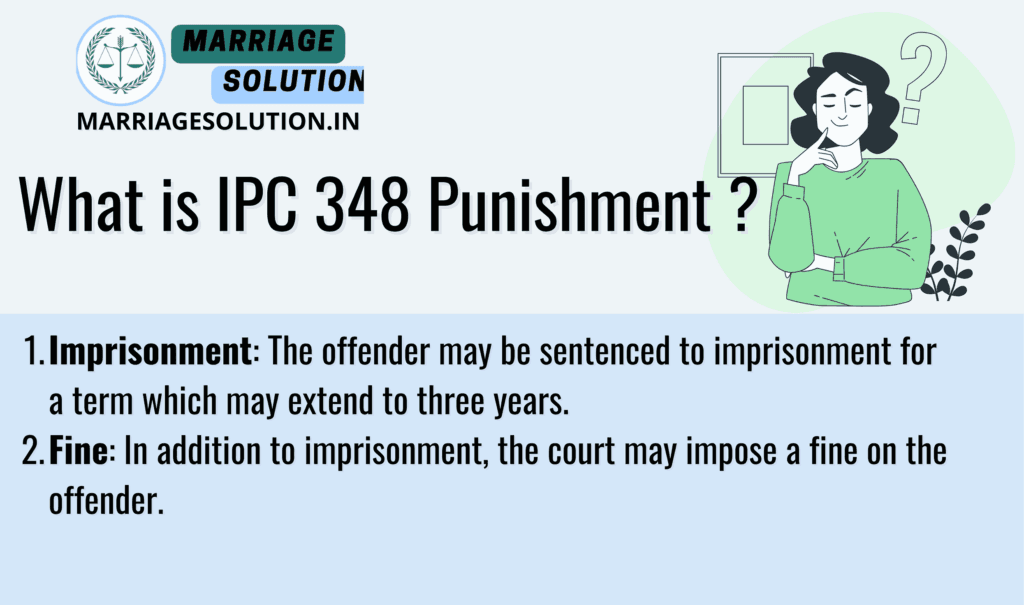
IPC Section 348 addresses the unlawful confinement of individuals for purposes like extorting confessions or compelling property return. It stipulates penalties, usually imprisonment for up to three years and/or a fine, to discourage such actions. The section underscores the importance of upholding personal freedoms and property rights.
IPC 347
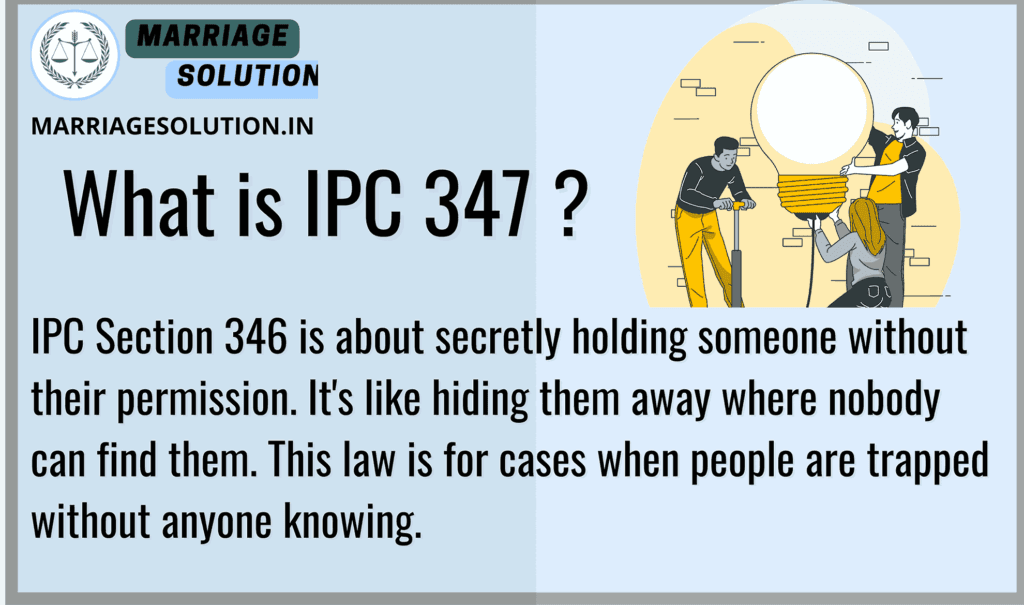
IPC Section 347 is about when someone wrongly traps another person for certain reasons. These reasons could be to take their things, make them do bad things, or get information for doing bad stuff. It’s serious because it takes away someone’s freedom and uses trapping to do bad things.
IPC 346
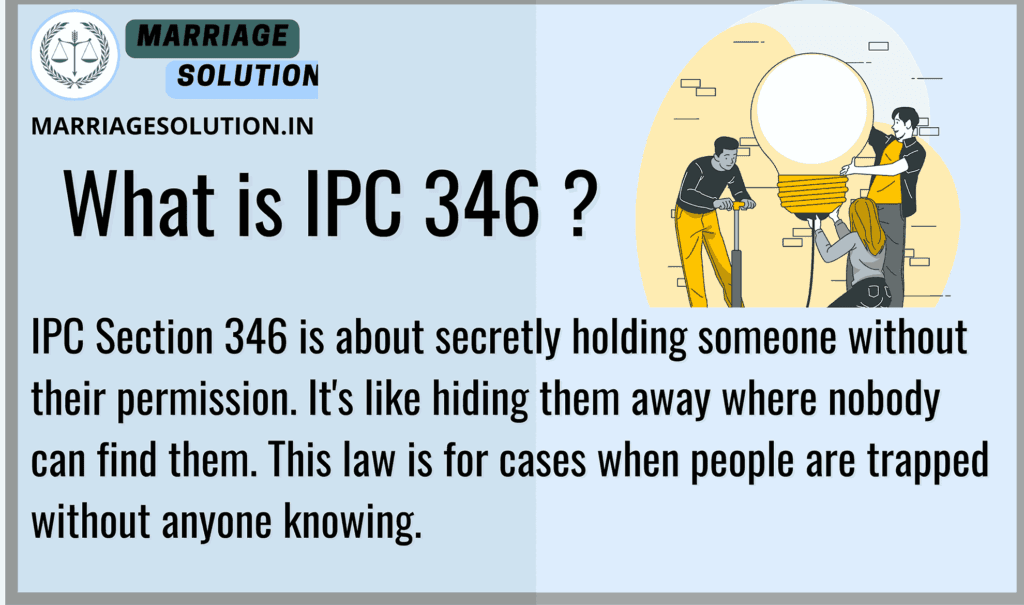
IPC Section 346 is about secretly holding someone without their permission. It’s like hiding them away where nobody can find them. This law is for cases when people are trapped without anyone knowing.
IPC 345

IPC Section 345 addresses the situation where someone wrongfully confines a person who is already in lawful custody. This means unlawfully keeping someone detained even though they are already being held by the authorities. The law aims to prevent abuse of power by ensuring that individuals cannot further restrict the freedom of those already under legal restraint.
IPC 344

IPC Section 344 addresses cases where someone wrongfully confines another person for ten days or more. If found guilty, the offender could be jailed for up to three years, fined, or both. This law aims to protect people’s freedom and discourage prolonged unlawful confinement.
IPC 343
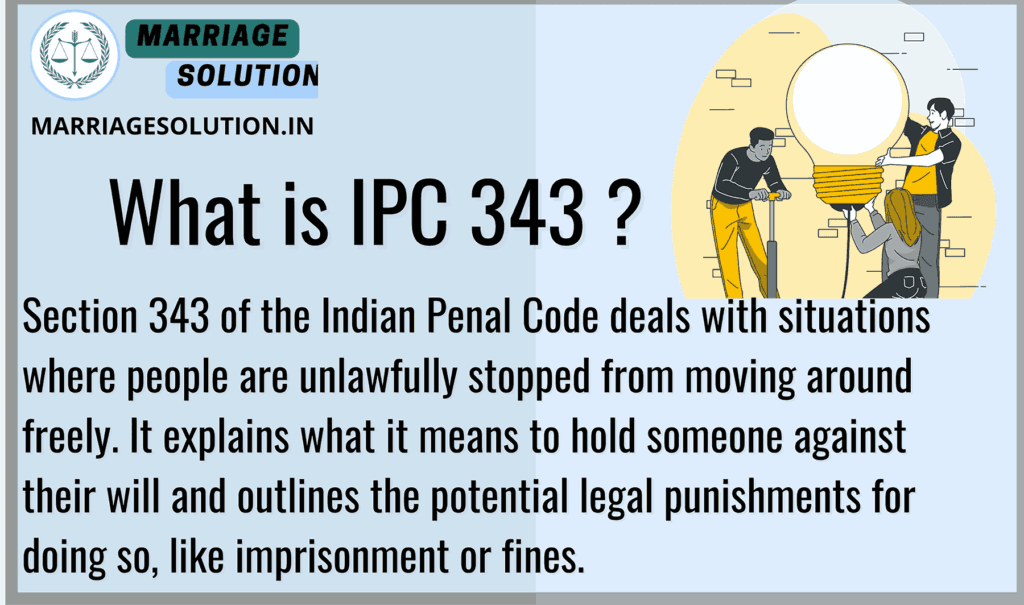
Section 343 of the Indian Penal Code deals with situations where people are unlawfully stopped from moving around freely. It explains what it means to hold someone against their will and outlines the potential legal punishments for doing so, like imprisonment or fines.
IPC 342
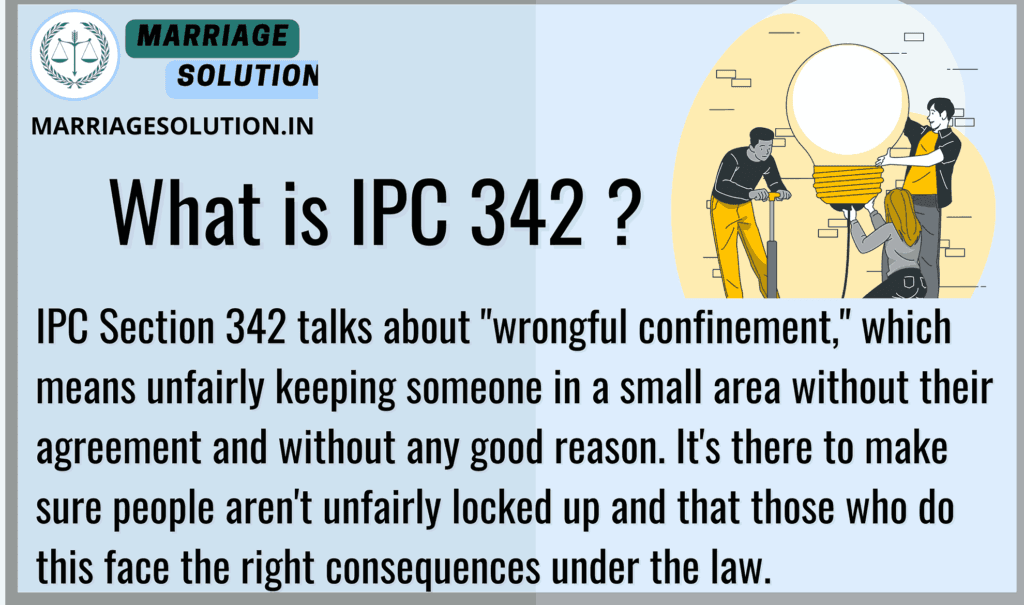
IPC Section 342 talks about “wrongful confinement,” which means unfairly keeping someone in a small area without their agreement and without any good reason. It’s there to make sure people aren’t unfairly locked up and that those who do this face the right consequences under the law.
